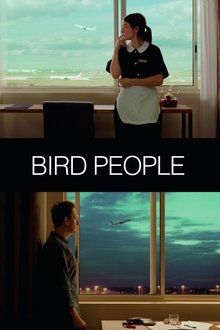The New Black is a documentary that tells the story of how the African-American community is grappling with the gay rights issue in light of the recent gay marriage movement and the fight over civil rights. The film documents activists, families and clergy on both sides of the campaign to legalize gay marriage and examines homophobia in the black community's institutional pillar-the black church and reveals the Christian right wing's strategy of exploiting this phenomenon in order to pursue an anti-gay political agenda. The New Black takes viewers into the pews and onto the streets and provides a seat at the kitchen table as it tells the story of the historic fight to win marriage equality in Maryland and charts the evolution of this divisive issue within the black community.
Related Movies

Antonia's Line (1995)
After World War II, Antonia and her daughter, Danielle, go back to their Dutch hometown, where Antonia's late mother has bestowed a small farm upon her. There, Antonia settles down and joins a tightly-knit but unusual community. Those around her include quirky friend Crooked Finger, would-be suitor Bas and, eventually for Antonia, a granddaughter and great-granddaughter who help create a strong family of empowered women.
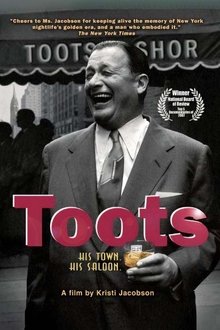
Toots (2007)
The '40s and '50s were a classic period in New York City nightlife, when the saloonkeeper was king and regular folks could drink with celebrities like Frank Sinatra and Jackie Gleason. In this documentary, Kristi Jacobson profiles her grandfather, the king of kings: Toots Shor of the eponymous restaurant and saloon, which was once the place to be seen in Manhattan. Edward R. Murrow called Toots Shor the owner of America’s greatest saloon. He became the unlikely den-mother to the heroes of America's golden age. Politicians and gangsters, sports heroes and movie stars - Sinatra, Gleason, DiMaggio, Ruth, Costello, Eisenhower, Nixon, Warren - for 30 years, they all found their way to Toots' eponymous saloon on New York's West 51st Street.

Olympia Part One: Festival of the Nations (1938)
Starting with a long and lyrical overture, evoking the origins of the Olympic Games in ancient Greece, Riefenstahl covers twenty-one athletic events in the first half of this two-part love letter to the human body and spirit, culminating with the marathon, where Jesse Owens became the first track and field athlete to win four gold medals in a single Olympics.

Olympia Part Two: Festival of Beauty (1938)
Part two of Leni Riefenstahl's monumental examination of the 1938 Olympic Games, the cameras leave the main stadium and venture into the many halls and fields deployed for such sports as fencing, polo, cycling, and the modern pentathlon, which was won by American Glenn Morris.

The Piano (1993)
When an arranged marriage brings Ada and her spirited daughter to the wilderness of nineteenth-century New Zealand, she finds herself locked in a battle of wills with both her controlling husband and a rugged frontiersman to whom she develops a forbidden attraction.
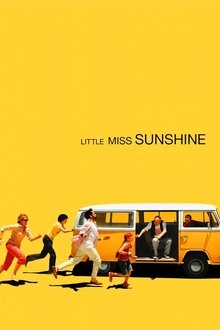
Little Miss Sunshine (2006)
A family loaded with quirky, colorful characters piles into an old van and road trips to California for little Olive to compete in a beauty pageant.
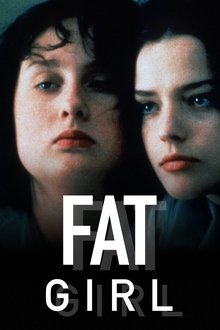
Fat Girl (2001)
Anaïs is twelve and bears the weight of the world on her shoulders. She watches her older sister, Elena, whom she both loves and hates. Elena is fifteen and devilishly beautiful. Neither more futile, nor more stupid than her younger sister, she cannot understand that she is merely an object of desire. And, as such, she can only be taken. Or had. Indeed, this is the subject: a girl's loss of virginity. And, that summer, it opens a door to tragedy.
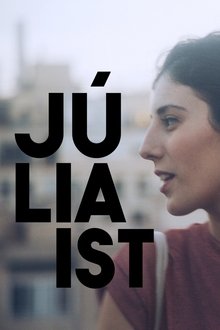
Julia Is (2017)
A young Spanish exchange student who is on her own for the first time in her life tries to adjust to a vastly different life in Berlin.
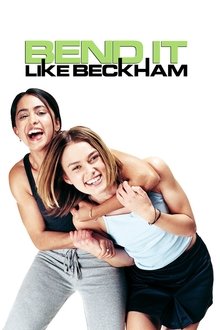
Bend It Like Beckham (2002)
Jess Bhamra, the daughter of a strict Indian couple in London, is not permitted to play organized soccer, even though she is 18. When Jess is playing for fun one day, her impressive skills are seen by Jules Paxton, who then convinces Jess to play for her semi-pro team. Jess uses elaborate excuses to hide her matches from her family while also dealing with her romantic feelings for her coach, Joe.
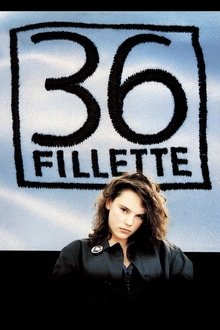
36 Fillette (1988)
Lili, a pouty and voluptuous 14-year-old, is caravan camping with her family in Biarritz. She's self-aware and holds her own in a café conversation with a concert pianist she meets, but she has a wild streak and she's testing her powers over men, finding that she doesn't always control her moods or actions, and she's impatient with being a virgin. She sets off with her brother to a disco, latching onto an aging playboy who is himself hot and cold to her. She is ambivalent about losing her virginity that night, willing the next, and determined by the third.
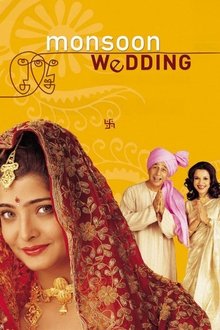
Monsoon Wedding (2001)
As the romantic monsoon rains loom, the extended Verma family reunites from around the globe for a last-minute arranged marriage in New Delhi. This film traces five intersecting stories, each navigating different aspects of love as they cross boundaries of class, continent and morality.

Cléo from 5 to 7 (1962)
Agnès Varda eloquently captures Paris in the sixties with this real-time portrait of a singer set adrift in the city as she awaits test results of a biopsy. A chronicle of the minutes of one woman’s life, Cléo from 5 to 7 is a spirited mix of vivid vérité and melodrama, featuring a score by Michel Legrand and cameos by Jean-Luc Godard and Anna Karina.
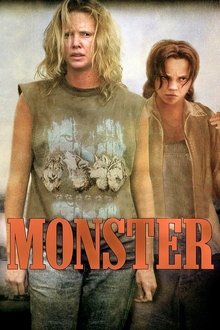
Monster (2003)
An emotionally scarred highway drifter shoots a sadistic trick who rapes her, and ultimately becomes America's first female serial killer.
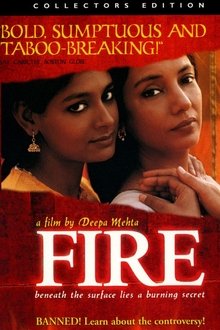
Fire (1997)
In a barren, arranged marriage to an amateur swami who seeks enlightenment through celibacy, Radha's life takes an irresistible turn when her beautiful young sister-in-law seeks to free herself from the confines of her own loveless marriage.
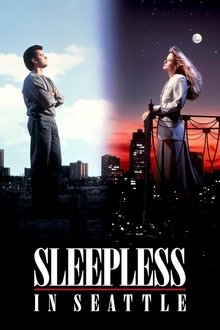
Sleepless in Seattle (1993)
After the death of his mother, a young boy calls a radio station in an attempt to set his father up on a date. Talking about his father’s loneliness soon leads to a meeting with a young female journalist, who has flown to Seattle to write a story about the boy and his father.
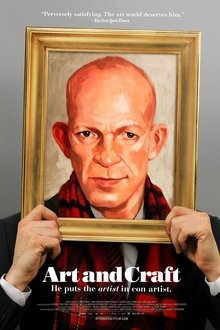
Art and Craft (2014)
For several decades, gifted and incredibly prolific forger Mark Landis compulsively created impeccable copies of works by a variety of major artists, donating them to institutions across the country and landing pieces on many of their walls. ART AND CRAFT brings us into the cluttered and insular life of an unforgettable character just as he finds his foil in an equally obsessive art registrar.
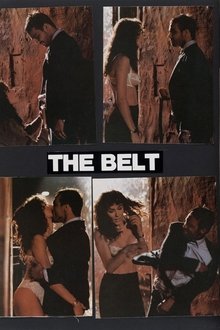
The Belt (1989)
Vittorio, an American novelist teaching in Rome, meets the beautiful but damaged Bianca and they rapidly fall into an urgent, tempestuous affair. He's hesitant over their relationship since she seems to thrive on conflict and is constantly baiting him into physical altercation. Bianca gives Vittorio an exquisite leather belt as a gift; he knows immediately that she wants him to whip her with it. Driven by his craving for her, Vittorio complies to Bianca's desire. Their relationship escalates into a dark realm of S&M which becomes more and more self-destructive.
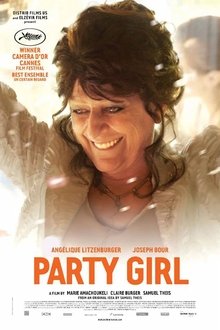
Party Girl (2014)
Angélique is a 60-year-old bar hostess. She still likes to party, she still likes men. At night, she makes them drink, in a cabaret by the French-German border. As time goes by, clients become rare. But Michel, her regular client, is still in love with her. One day, he asks Angélique to marry him.
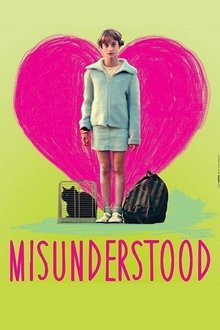
Misunderstood (2014)
Rome, 1984, Aria is nine-year-old girl. On the verge of divorce, Aria's infantile and selfish parents are too preoccupied with their careers and extra-marital affairs to properly tend to any of Aria's needs. While her two older sisters are pampered, Aria is treated with cold indifference. Yet she yearns to love and to be loved. At school, Aria excels academically but is considered a misfit by everyone. She is misunderstood. Aria finds comfort in her cat - Dac and in her best friend - Angelica. Thrown out of both parents' homes, abandoned by all, even her best friend, Aria finally reaches the limit of what she can bear. She makes an unexpected decision in her life.
